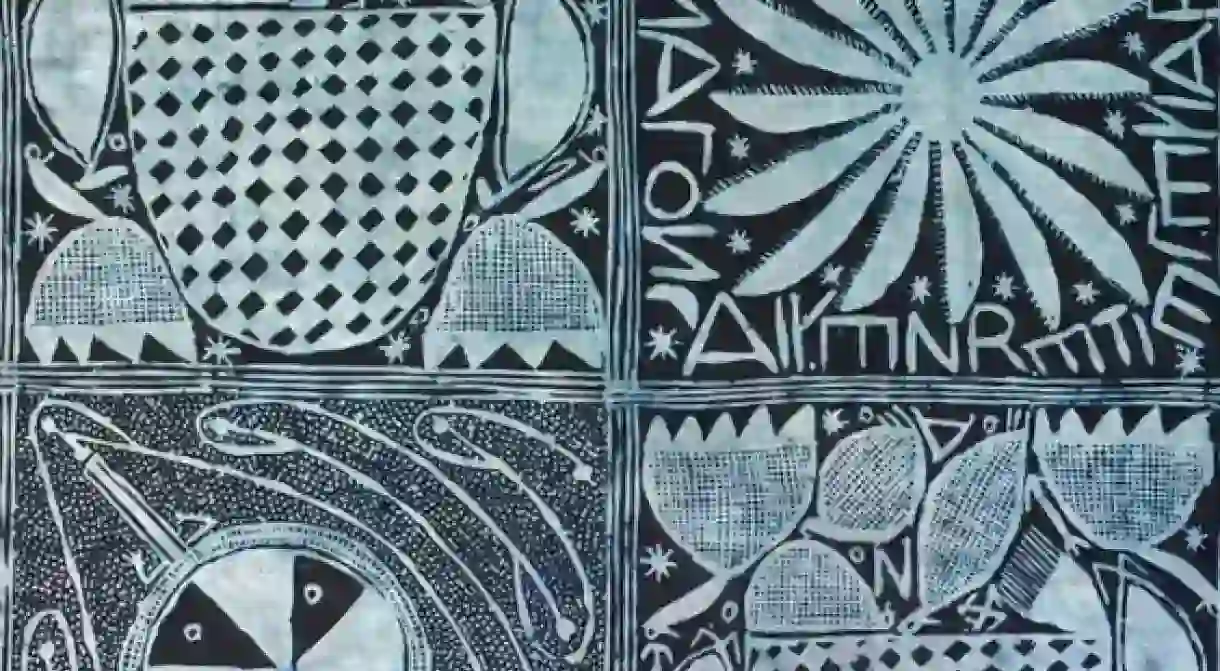12 Things You Can Only Buy in Nigeria

With more than 250 ethnic groups, Nigeria is one of the most ethnically diverse countries in Africa. But in spite of globalization, there are still some things that can only be found within its borders. Here are 12 of the best things from Nigeria you can buy.
Aso Oke/Aso Ofi
A hand-woven material made in the southwestern part of Nigeria by the Yoruba, the name translates as ‘top cloth’. But it is also used in reference to the master weavers who hail from the northernmost part of Yoruba land, who are referred to as ‘ara-oke’. This specially made cloth is pretty expensive and is worn on special occasions like weddings, funeral and chieftaincy installation ceremonies. There are three major types, the Alaari (deep red), Sanyan (light brown) and Etu (dark blue/purple).

Wara
Made from cow milk, wara is a delicious cheese curd that is produced mostly in the small town of Wara, in Kwara, one of the northernmost part of the southwest. The cheese curd is also produced by the Hausa Fulani, a pastoral group from the North.

Nigerian Movies
Rated as the second biggest film industry in the world (second only to Bollywood in terms of output), the Nigerian Film Industry – aka Nollywood – is a staple of Africans and people in the diaspora. With stories as diverse and as rich as the 500+ ethnic groups within its borders, the movies range from the ridiculous to the highly entertaining.

Udara/Agbalumo
Known as Udara amongst the Igbo people of the southeast and Agbalumo by the Yoruba people of the southwest, the African Cherry is not only delicious with a distinctive silky texture, it also has various nutritional benefits.

Nigerian Jollof Rice
For nearly five years there has been an ongoing battle between Ghanaian and Nigerian chefs and gourmets about the supremacy of the jollof rice. In cyberspace this is known as the Jollof Rice Wars: Ghanaian or Nigerian Jollof rice? To get a taste of the best locally made Nigerian Jollof rice, one would have to be in Nigeria.

Suya/Moinmoin
Suya and moinmoin are Nigerian street foods. While suya is barbecued beef (or chicken), seasoned with specially prepared ingredients sourced mostly from northern Nigeria, moinmoin is garnished beanpaste steamed in thaumatococcus danieli leaves (Ibo: Uma, Yoruba: Ewe Eran). These two delicacies are best eaten warm.

Nigerian Music
From hip-hop club bangers to the soothing notes of the goje (a two stringed fiddle), the Nigerian music industry is also one of the major exports. Fela Anikulapo-Kuti, Sunny Ade, Wizkid, Flavor to mention a few, are some of the musical superstars that have placed Nigerian music on the world map. There are also a lot of acts that are superstars locally, with their music enjoyed in different parts of the country.

Sculptures
Spread across the various ethnic groups in Nigeria are various local artists creating sculptures that are unique to their ethnic lines. Nigeria is the best place to pick up an authentic piece of artwork.

Adire
Adire is an indigo dyed cloth produced by the Yoruba women of southwestern Nigeria, particularly those from Abeokuta. The three basic resist techniques used to dye the cloth are Oniko (tying raffia around small pebbles to produce white rings), Alabere (stitching raffia onto a fabric in a particular pattern) and Eleko (covering the cloth in cassava paste before dyeing).

Udu
Both a water jug and musical instrument, the Udu is made from baked clay by the women from the southeast of Nigeria. To produce the musical instrument an extra hole is added to the jug. It produces a bass sound that changes in pitch depending on how the hand above the jug is positioned.

Hausa Leather Goods
Traditional hand-stitched leather pouffes, slippers, bags and so much more, can be bought from the northern part of the country. The leather is processed in time-honored techniques, and designed with traditional motifs unique only to the Hausas.
Aran
A velvet cloth with silky texture, usually worn in accompaniment to Aso-Oke, it comes in various colours of rich reds, purples and browns. The cloth is so expensive that it is only worn by the rich as a status symbol and babies swaddled in this cloth are considered special. Aran is often made into flat shoes and slippers for both men and women.













